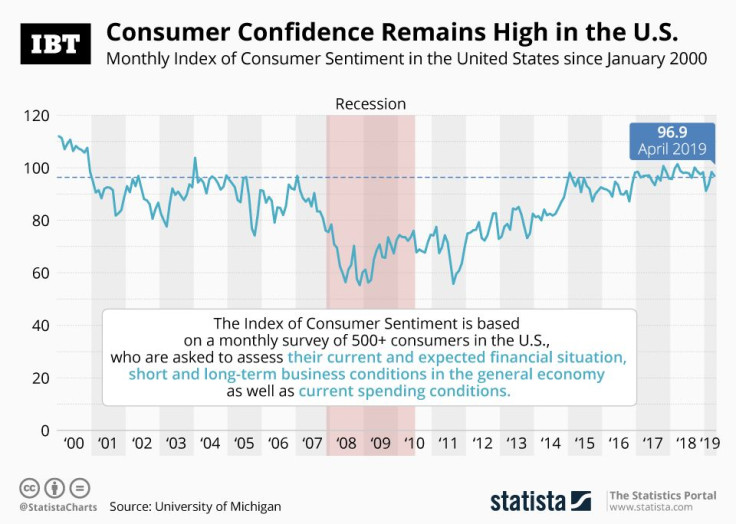Infographic: US Consumer Sentiment Fell In April As Impact Of Tax Cuts Fade

According to preliminary figures published by the University of Michigan on Friday, consumer confidence in the United States cooled down slightly in April as the positive impact of recent tax cuts faded away. While consumers remain very positive about current economic conditions, they look ahead slightly more worried than a month ago, resulting in a 3.4 percent drop in the Index of Consumer Expectations, the forward-looking element of the Index of Consumer Sentiment.
Despite the small setback, confidence remains high overall, as the following chart, dating back to January 2000, shows. After a brief worsening of consumer sentiment due to the shutdown in January, confidence was promptly restored thanks to rising incomes, low inflation, plentiful jobs and low unemployment.
The importance of consumer optimism and confidence is widely recognized, as high confidence typically boosts private consumption, a key driver of economic growth. As the University of Michigan explains:
"Economic optimism promotes consumer confidence and a willingness to make large expenditures and debt commitments, while economic uncertainty breeds pessimism and a desire to curtail expenditures and rebuild financial reserves. When many people change from an optimistic to a pessimistic view of economic prospects at the same time, it has been repeatedly found that a widespread shift toward postponement of expenditures follows. It is in this manner that the economic optimism and confidence of individual families exert their influence on the course of the aggregate economy."



















